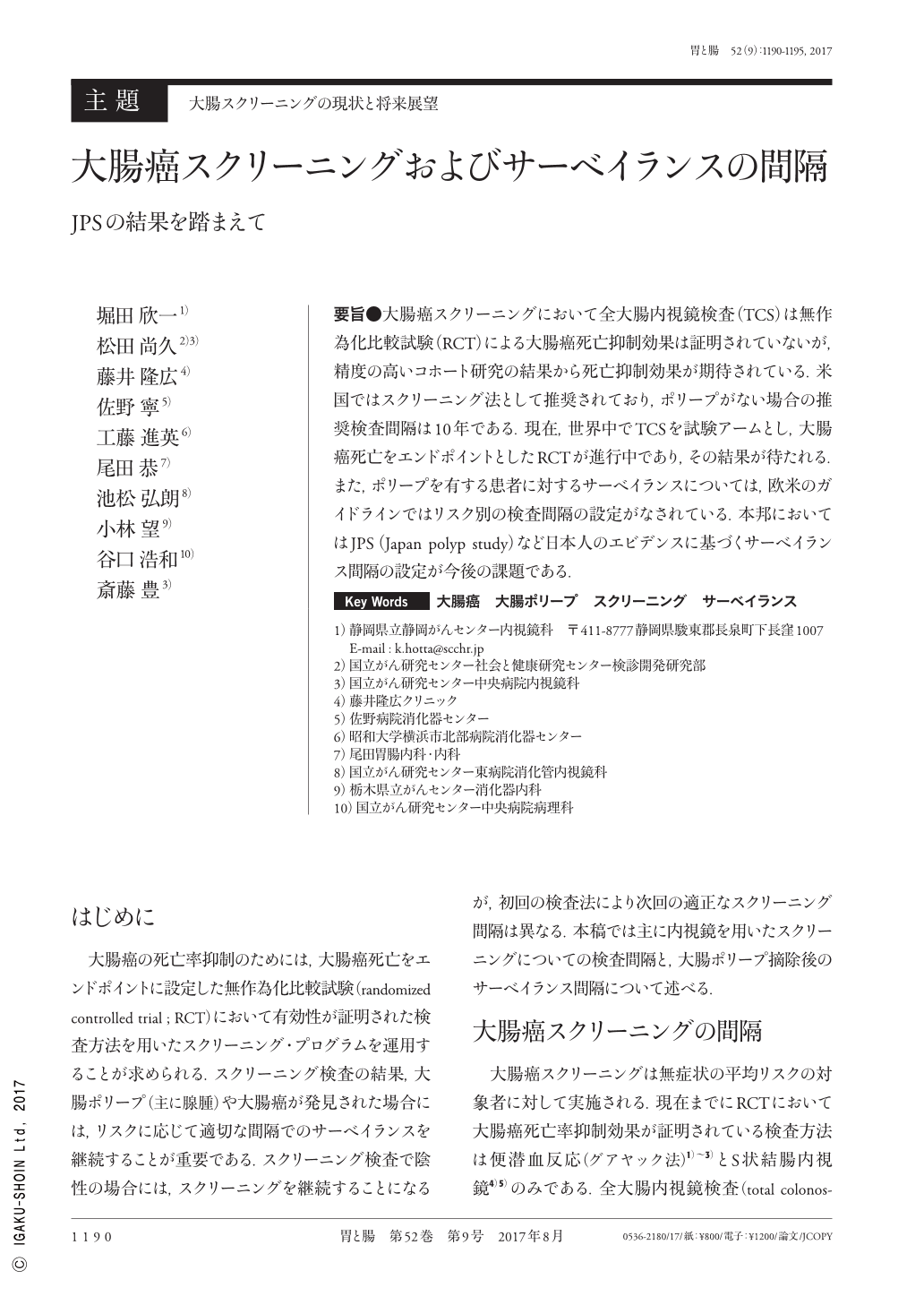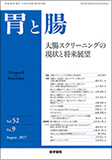Japanese
English
- 有料閲覧
- Abstract 文献概要
- 1ページ目 Look Inside
- 参考文献 Reference
- サイト内被引用 Cited by
要旨●大腸癌スクリーニングにおいて全大腸内視鏡検査(TCS)は無作為化比較試験(RCT)による大腸癌死亡抑制効果は証明されていないが,精度の高いコホート研究の結果から死亡抑制効果が期待されている.米国ではスクリーニング法として推奨されており,ポリープがない場合の推奨検査間隔は10年である.現在,世界中でTCSを試験アームとし,大腸癌死亡をエンドポイントとしたRCTが進行中であり,その結果が待たれる.また,ポリープを有する患者に対するサーベイランスについては,欧米のガイドラインではリスク別の検査間隔の設定がなされている.本邦においてはJPS(Japan polyp study)など日本人のエビデンスに基づくサーベイランス間隔の設定が今後の課題である.
RCTs(Randomized controlled trials)have not revealed a role of colonoscopy in preventing CRC(colorectal cancer)-related deaths. However, large-scale cohort studies have provided strong evidences regarding the effectiveness of colonoscopy in preventing CRC-related deaths. In the United States, colonoscopy is recommended as one of the screening tests for CRC, and an interval of 10 years is suggested after a negative colonoscopy. There have been some recent promising on-going RCTs of screening using colonoscopy, with CRC-related deaths as the primary endpoint. In western countries, surveillance guidelines after polyp removal were published according to the stratification of individual risks. Therefore, creating a Japanese surveillance guideline, such as that by the Japan Polyp Study, on the basis of evidences from clinical trials that include Japanese patients is important.

Copyright © 2017, Igaku-Shoin Ltd. All rights reserved.


